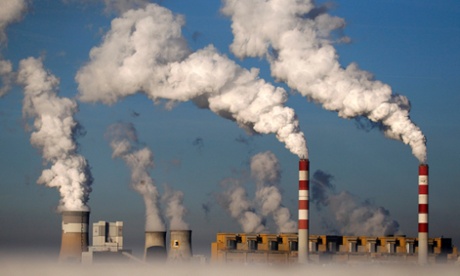Indonesian authorities were searching for an AirAsia aircraft with 155 passengers onboard Sunday after air traffic controllers lost contact with the plane, the airline said.
The plane, Flight QZ8501, left the Indonesian city of Surabaya in the morning and was bound for Singapore, officials said.
Air traffic control lost contact with the Airbus A320-200 at 7:24 Sunday morning Singapore time, the airline said in a statement on its Facebook page.
AirAsia, a budget operation based in Malaysia,
is one of the world’s fastest-growing airlines. Contact with the plane
was lost about 42 minutes after takeoff, Hadi Mustofa, an Indonesian
transportation ministry official, told Indonesia’s MetroTV, according to The Associated Press.
AirAsia has set up an emergency line for family or friends of those who may be on board. The number is +622 129 850 801.
The company's chief executive, Tony Fernandes, tweeted: "Thank you for all your thoughts and prayers. We must stay strong."
"At the present time we unfortunately have no further information
regarding the status of the passengers and crew members on board, but we
will keep all parties informed as more information becomes available,"
AirAsia said.
The captain in command had a total of 6,100 flying hours and the first
officer a total of 2,275 flying hours, according to the airline. The
aircraft had undergone its last scheduled maintenance on November 16,
2014.
The flight manifest for the Airbus A320-200, with the registration
number PK-AXC, released by the Indonesian authorities said there were
155 passengers on board, including one infant and 16 children.
The breakdown of passenger nationalities are 149 Indonesians, three
South Koreans, one Singaporean, one Malaysian, one from the United
Kingdom while the seven AirAsia staff on board are made up of six
Indonesians and one French.
The Singapore aviation authority said it was informed about the missing plane by Jakarta ground control about half an hour after the contact was lost.
"Search and rescue operations have been activated by the Indonesian authorities," it said, adding that the Singapore air force and the navy also were activated with two C-130 planes.
Eric
Schultz, a White House spokesman, said that President Obama, who is
vacationing in Hawaii, had been briefed on the search for the plane, and
that “White House officials will continue to monitor the situation.”
Flightradar24,
a website that uses a global system of beacons to monitor air traffic,
said the aircraft was flying at 32,000 feet over the Java Sea when the
aircraft’s signal was lost. The Java Sea separates the islands of Borneo
and Java.
_____
Singapore has activated its Rescue Coordination Centre (RCC) and has offered help to Indonesian authorities in the search and rescue mission following the disappearance of Indonesian AirAsia aircraft, QZ8501.
RCC is managed by the Civil Aviation Authority of Singapore (CAAS) and supported by various agencies, including the Republic of Singapore Air Force (RSAF) and the Republic of Singapore Navy (RSN).
Read more at: http://english.astroawani.com/news/show/qz8501-singapore-activates-coordination-centre-assist-sar-51093?cp
_____
Malaysia has deployed three army vessels and a C-130 Hercules to the Belitung area in the search and rescue (SAR) operation to find the missing AirAsia flight QZ5801.
"The Malaysian government has committed and deployed our military assets to assist Indonesia with the search operations. I have been in close contact with my counterparts in both Indonesia, Ignasius Jonan and Singapore, Lui Tuck Yew to lend any available assistance in this time of need.
"We have also established the Rescue Coordination Centre (RCC) at the Kuala Lumpur Air Traffic Control Centre (ATCC) in Subang to assist with the coordination effort in searching for QZ8501," Malaysian Transport Minister Datuk Seri Liow Tiong Lai told a media conference today.
_____
Singapore has activated its Rescue Coordination Centre (RCC) and has offered help to Indonesian authorities in the search and rescue mission following the disappearance of Indonesian AirAsia aircraft, QZ8501.
RCC is managed by the Civil Aviation Authority of Singapore (CAAS) and supported by various agencies, including the Republic of Singapore Air Force (RSAF) and the Republic of Singapore Navy (RSN).
Read more at: http://english.astroawani.com/news/show/qz8501-singapore-activates-coordination-centre-assist-sar-51093?cp
_____
Malaysia has deployed three army vessels and a C-130 Hercules to the Belitung area in the search and rescue (SAR) operation to find the missing AirAsia flight QZ5801.
"The Malaysian government has committed and deployed our military assets to assist Indonesia with the search operations. I have been in close contact with my counterparts in both Indonesia, Ignasius Jonan and Singapore, Lui Tuck Yew to lend any available assistance in this time of need.
"We have also established the Rescue Coordination Centre (RCC) at the Kuala Lumpur Air Traffic Control Centre (ATCC) in Subang to assist with the coordination effort in searching for QZ8501," Malaysian Transport Minister Datuk Seri Liow Tiong Lai told a media conference today.
Sources:-
1. http://www.nytimes.com
2. http://www.bbc.com/news
3. abcnews.go.com/International
4. http://www.foxnews.com






















































